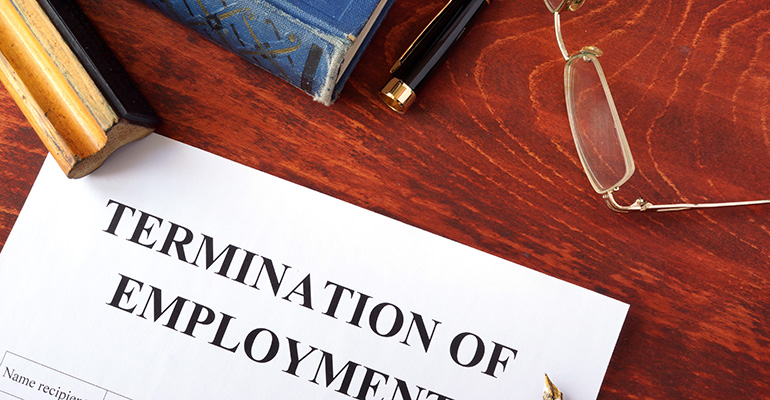
Guide to the FMLA and Pregnancy: Your Maternity Leave Rights
Bringing children into the world is an incredible time in our lives. But when it comes to taking time off from work, the FMLA pregnancy guidelines can be complicated. It is important to know your rights when it comes to pregnancy leave. Not only for you and your family’s personal needs but also to ensure that your rights as an employee are being protected— and honored by your employer.
It is not uncommon for employers to cause problems for female employees who become pregnant. They may harass, discriminate, or even fire you for taking leave. FMLA pregnancy leave was set up by the federal government to protect workers. It allows women and families to take the time they need and legally protects you from actions by the employer which may interfere with your exercise of these rights, retaliation by the employer and establishes your right to return to work at the expiration of your leave.
FMLA Pregnancy Guidelines and FAQs
Here are important FMLA guidelines for pregnancy, and some of the most common questions Florida employees ask:
How does FMLA work for pregnancy?
The FMLA, the Family & Medical Leave Act, is federal legislation that covers eligible employees who work for a company with 50 or more employers in a 75-mile radius. Eligible employees can take maternity leave for pregnancy or parenting if they have worked for the employer for at least one year, and for at least 1,250 hours in that year before taking maternity leave. The FMLA gives you the right to take leave without losing your job.
You also have the right not to be discriminated because you are pregnant. This includes harassment from your boss or other management, other employers, or even customers. Types of harassment pregnant women could experience include frequent insults, offensive jokes, or even physical threats.
How long can you take FMLA for pregnancy?
The FMLA pregnancy guidelines give you up to 12 weeks of leave per year for pregnancy and taking care of your child. When you come back to work, you have the right to go back to an equivalent position to the one you had before you took time off —with virtually identical pay, benefits, and any other perks.
Does FMLA pay for maternity leave?
Under the FMLA rules, you are guaranteed your job when you return (provided you return before exceeding the FMLA leave period), but your leave is not paid. But, you can be required to use any vacation time or sick time you have saved up while on FMLA leave.
Can I Take FMLA for my pregnant daughter?
The FMLA covers leave required by a family member to take care of another family member, such as caring for a pregnant daughter, only under certain circumstances. The daughter must be incapable of self-care due to a disability — and a parent must be needed to take care of her due to a serious health condition. Certain pregnancy-related issues may be classified as a disability if they substantially limit a significant life activity. The fact your daughter is pregnant standing alone will not necessarily trigger the protections of the FMLA. On a related issue- caring for the newborn after she delivers (grandparent leave) is not strictly covered under the FMLA but there are exceptions if you are the primary caretaker for the child essentially standing in the shoes of a parent or your assistance with the child is in effect an extension of caring for your own child. These are complicated issues and you should not assume as a grandparent the entitlement to leave is a clear-cut issue.
What are the FMLA forms for pregnancy?
There is a step-by-step process to apply and get approved for FMLA pregnancy leave. Depending on your particular situation, you will need different forms (military, serious health condition, etc.). Typically, the first step is a form to notify your employer of the impending leave which should be given at least 30 days prior to the expected time off.
We have a list of Family and Medical Leave Act forms, including the Health Care Provider Certification Form and the Certification of Qualifying Exigency for Military Leave Form. The failure by an employee to timely submit completed forms may be fatal to your entitlement to leave.
Have your maternity leave rights been violated in regards to FMLA and pregnancy?
The FMLA designates certain rights to pregnant women. Unfortunately, it is not uncommon for employers to take actions that violate the FMLA pregnancy leave rules. Have you been fired for getting pregnant? Did your wages get docked or were you demoted to a lower position after you came back from maternity leave?
If these difficult situations have happened to you, Wenzel, Fenton, Cabassa P.A. is here to fight for your employee rights. You should be able to have a family and a career at the same time, and not have to deal with losing a job, discrimination, demotion, or other issues that may come up in the workplace after you get pregnant.
Contact us today and schedule your free, confidential consultation for assistance with any issues with your employer in regards to FMLA and pregnancy. We are dedicated to helping women and their families across Florida with locations in Tampa, Orlando, Miami, Sarasota, St. Petersburg and, West Palm Beach, and Jacksonville.
Please Note: At the time this article was written, the information contained within it was current based on the prevailing law at the time. Laws and precedents are subject to change, so this information may not be up to date. Always speak with a law firm regarding any legal situation to get the most current information available.









